Mastering Your Rental Property Finances: A Comprehensive Guide
Master your rental property's finances with our comprehensive guide on managing bank accounts effectively. Discover best practices, the benefits of a dedicated account, and how technology can streamline your financial journey.
June 8, 2023
Michelle
.png)
As a property investor or rental property owner, you have undoubtedly experienced the thrill of acquiring investment properties. However, managing them becomes challenging when you have multiple rental properties, accounts, and transactions to track.
Don't fret if you're a new property manager. This comprehensive guide will help you manage your real estate investments and business finances well.

How do dedicated bank accounts for each property help Real Estate Investors?
Rental property owners juggle regular gross rental incomes, mortgage payments, interest rates, repairs, maintenance expenses, property taxes, operating expenses, and other financial transactions for every property they own.
For this reason, opening separate bank accounts can be crucial to real estate investing as it keeps your finances organized.
Financial Separation
A separate account or dedicated bank account for the revenues and expenses of each of your rental properties creates a clear demarcation between your personal finances and each of your investment finances.
Streamlined Tax Preparation
When tax season rolls around, calculating your taxable income becomes significantly more straightforward and tax preparation fees are less time-consuming because all property finances are confined to individual accounts.

Easy Expense Tracking
With a dedicated bank account for each property, tracking your property-related expenses and performance throughout the year becomes simple as every transaction is documented in one place. Check out our tools related to this here.
Readiness for Unexpected Costs
Rental properties often come with unexpected expenses. Having a dedicated bank account for each rental ensures that you have a financial buffer exclusively for each property, allowing you to track monies effectively and manage unexpected costs.

Professionalism
Dedicated bank accounts for each property lends a level of professionalism to your operations. It shows the homeowners and suppliers that you have a good business reputation.

In conclusion, dedicated bank accounts for each of your rental property investments creates an efficient, organized, and stress-free rental property accounting system.
Choosing an Investment Property-Friendly Bank

Selecting the right local bank for managing rental property bank accounts is crucial for property investors and managers.
Here are some essential factors to evaluate when choosing a real estate-friendly bank:
- Online Account Access
Robust online banking services can help you access your accounts from anywhere to manage your multiple rental properties.
- Dedicated Property Management Accounts
Seek a bank that offers specialized account types tailored to real estate investor needs. These accounts may include features such as automated rent collection, expense categorization, and insightful financial reporting specific to rental properties.

- Convenient Payment Solutions
A real estate-friendly bank should provide efficient payment solutions for rent collection and property-related expenses. Look for features like online rent payment portals, automatic recurring payments, and the ability to generate and distribute electronic invoices.
- Around-the-Clock Customer Service
Ensure that the bank offers reliable customer support services available 24/7 to help address any banking-related issues promptly, such as resolving a transaction discrepancy, answering account-related queries, or troubleshooting technical difficulties. - Competitive Fee Structure
Consider the fee structure associated with the bank's services. Look for a bank that offers fee waivers or discounts for property investors and managers, and transparent, reasonable fees for account maintenance, transaction processing, and additional services.
- Integration with Property Management Software
If you utilize property management software, check if the bank (or your accounting software, like Clearing) integrates seamlessly with your chosen platform. This integration enables automatic synchronization of financial data, simplifying bookkeeping tasks, reducing manual data entry, and creating valuable performance insights.

- Additional Features and Benefits
Explore any supplementary services that the bank offers. These may include perks like better credit options, higher interest rates on savings accounts, financing options, mortgage loans, or mortgage insurance.
Another benefit of such banks is that they help investors and managers opt for a portfolio loan.
You can either research to compare multiple banks yourself or reach out to fellow property investors to get insight into potential banks they recommend.
An actual estate-friendly bank and supportive accounting and bookkeeping tools that align with your requirements will help you create a consolidated and efficient system.
Understanding Business Bank Accounts Vs. Personal Bank Accounts

Understanding the difference between business and personal bank accounts is important for managing your assets and rental property finances.
Here's a concise comparison between Business Bank Accounts and Personal Bank Accounts:
Business Bank Accounts:
- Designed for rental property businesses.
- Provide flexibility and scalability for managing higher transaction volumes.
- Allow for a clear separation between personal and rental property finances.
- Offer specialized services like automated rent collection and customizable financial reporting.
- Generally, they have lower fees compared to personal accounts.
- It can provide benefits such as higher interest rates on business savings accounts and access to credit or loan options.
Personal Bank Accounts:
- Suitable for individuals with more superficial financial structures.
- Convenient and easy to set up and manage.
- Lower minimum balance requirements.
- Lower fees for small-scale transactions.
- May not offer specialized services tailored to rental property management.
Consider the size and complexity of your rental property business when deciding between a business bank account or a personal bank account.
Regular Account Monitoring for Rental Income

Whether you have multiple properties or diverse income sources, implementing proper monitoring practices ensures income and expense tracking accuracy and helps you stay on top of your finances. Here are vital steps to follow:
- Categorize Deposits Correctly: For better financial analysis and planning, ensure that all deposits are accurately categorized to track rental income, security deposits, and other revenue sources.
- Review Account Statements: To prevent financial losses and maintain rental property income integrity, regularly review your account statements to identify unauthorized transactions, errors, duplicate charges, or unexpected fees.
- Utilize Budgeting Tools: Use budgeting tools or software to monitor and track your rental property income and expenses to optimize your budget and increase profitability.
- Set Up Automated Alerts: Take advantage of automated alerts to be notified about large withdrawals, deposits, or low balances and to be informed about your cash reserves, track down payments, or address any financial issue.
- Review Monthly Expenses Against Goals: Regularly review your monthly expenses and compare them against your financial goals to assess your budget, cut costs, monitor lost rental income, and even analyze debt to income ratio.
By implementing these monitoring practices, you can maintain financial control, identify potential issues early on, and properly manage your rental property accounts.
Navigating Short-Term Rental Legalities

When engaging in Short-Term Rentals as a business opportunity, it's essential to understand and comply with local legal requirements.
Here are key considerations to keep in mind:
- Research Local Regulations: Familiarize yourself with local and state regulations that govern Short-Term Rentals, such as restrictions on rental durations, permits or licenses required, safety standards, and tax obligations.
- Tax Considerations: Consult with a tax professional to understand your tax obligations, such as occupancy or sales taxes, and ensure proper tax reporting. Set up your bank account structure to accommodate tax payments and keep accurate records for tax purposes.
- Bank Account Structure: Choose a bank account structure that aligns with the needs of your Short-Term Rental business. Consider separate categories for rental income, expenses, and taxes to maintain clear financial records.
- Insurance Coverage: Adequate coverage is vital for Short-Term Rentals to protect yourself from potential lawsuits or issues. Ensure you have enough cash in your account to cover insurance premiums.
These measures help protect your property, mitigate risks, and ensure compliance with relevant laws and regulations.
Best Practices for Efficiently Managing Your Rental Property Bank Account

To effectively manage business funds in your rental property bank account, follow these best practices:
- Stay Organized: Keep your rental property finances organized by maintaining a centralized system. Use a designated account for all rental-related transactions and consistently track income and expenses.
- Utilize Automation Tools: Use online rent payment platforms to automate rent collection, streamline payment tracking, generate monthly statements, categorize expenses, and create financial reports. Clearing has many ways to automate mundane tasks, we encourage you to check them out today.
- Monitor Transactions Closely: Regularly monitor your bank account transactions to ensure accuracy and identify any irregularities. Promptly report any suspicious transactions to your bank.
- Set Up Alerts: Take advantage of account alerts and notifications provided by your bank. Set up alerts for large transactions, low balances, or any other criteria that require your attention.
- Reconcile Regularly: Regularly reconcile your bank account statements with your financial records. This process ensures that all transactions are accounted for and helps identify discrepancies or errors.
By implementing these best practices, you can efficiently manage your rental property bank accounts, maintain financial organization, simplify processes through automation, and safeguard your business against potential financial risks.

How Clearing Can Help Automate and Optimize Your Rental Property Account
If you're seeking a more streamlined approach to managing and structuring your rental property bank account, look no further than Clearing.
Our Software-as-a-Service (SaaS) accounting platform is designed to automate and optimize rental cash flow processes, making them more accessible and more efficient for property managers like you.

With Clearing, you can take advantage of the following key features to manage your rental accounts effectively:
- Automated Deposits: Clearing automates depositing funds from guests directly into your property account, ensuring a seamless and timely collection of reservation payments.
- Structured Funds Management: Clearing enables you to efficiently structure funds into separate accounts for each property or building, providing a clear and organized financial overview.
- Streamlined Payments: Clearing streamlines payment processes associated with each property, simplifying the management of expenses and ensuring efficient transaction handling.
- Comprehensive Tracking: Keep track of expenses and payments associated with each booking, property, or building using Clearing's comprehensive tracking system. This feature allows for accurate and detailed financial record-keeping.
- Notifications: Stay informed about your cash flow with automated notifications within Clearing. Receive alerts when transactions fail or when there are changes in your rental property's financial activity.
- Actionable Insights: Gain valuable insights into your rental income, expenses, and investments with Clearing's reporting and analysis tools. Make data-driven decisions to optimize your financial strategy.
Clearing's advanced technology empowers you to automate and optimize your rental property bank accounts, saving you time and effort.
Experience the benefits of fast, easy, accurate, and efficient financial management with Clearing.
Managing your rental property bank account effectively is key to maximizing profits and maintaining a healthy cash flow.
With the right bank, a clear understanding of your account, regular monitoring of separate bank accounts, and automation tools, you can make the process significantly more straightforward and efficient.
Have you considered using Clearing’s services to streamline your rental property finances?
Click here to learn how Clearing can optimize your rental property bank account management.
Clearing is a Financial Technology Company, not a bank.

.png)
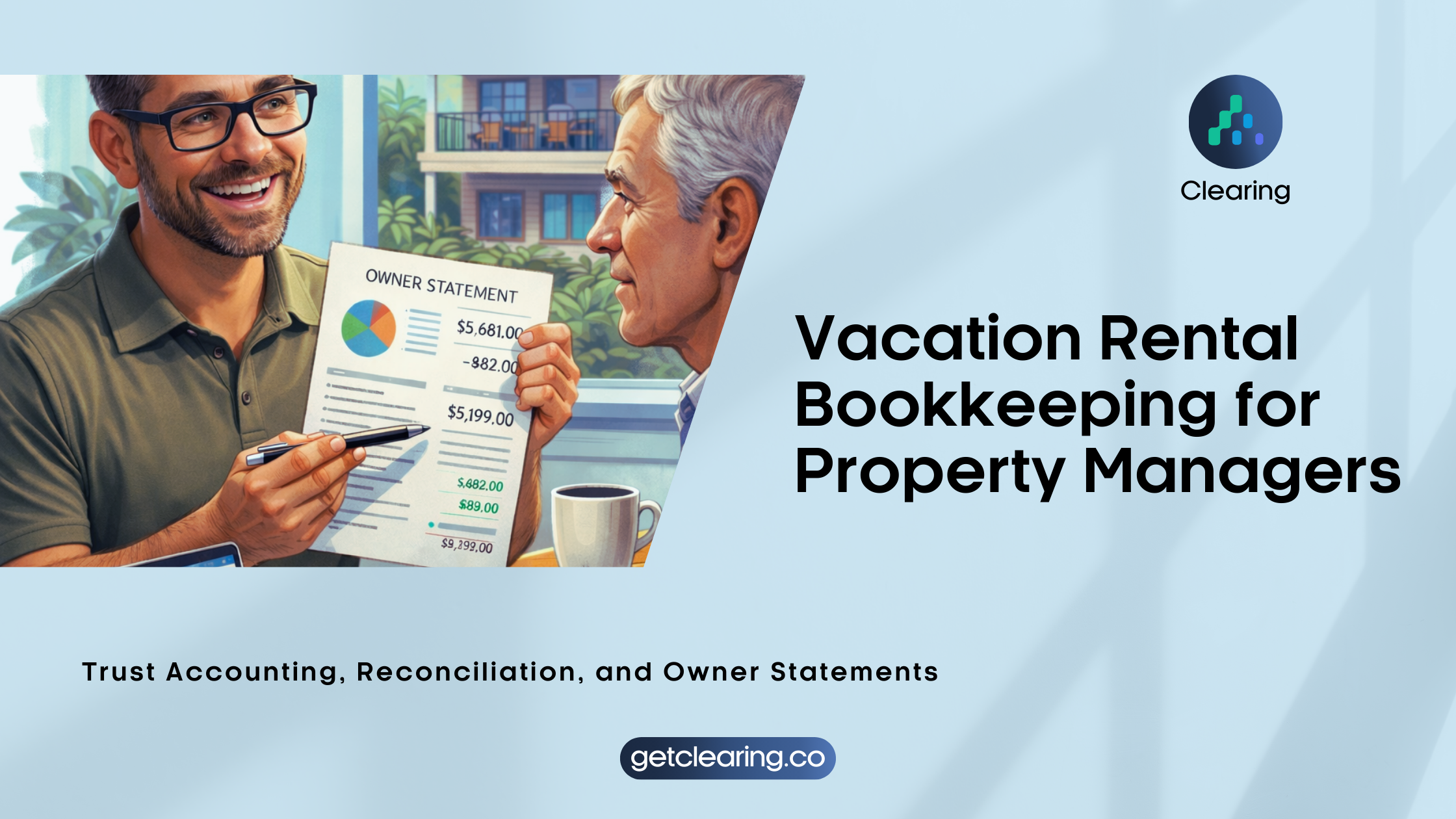



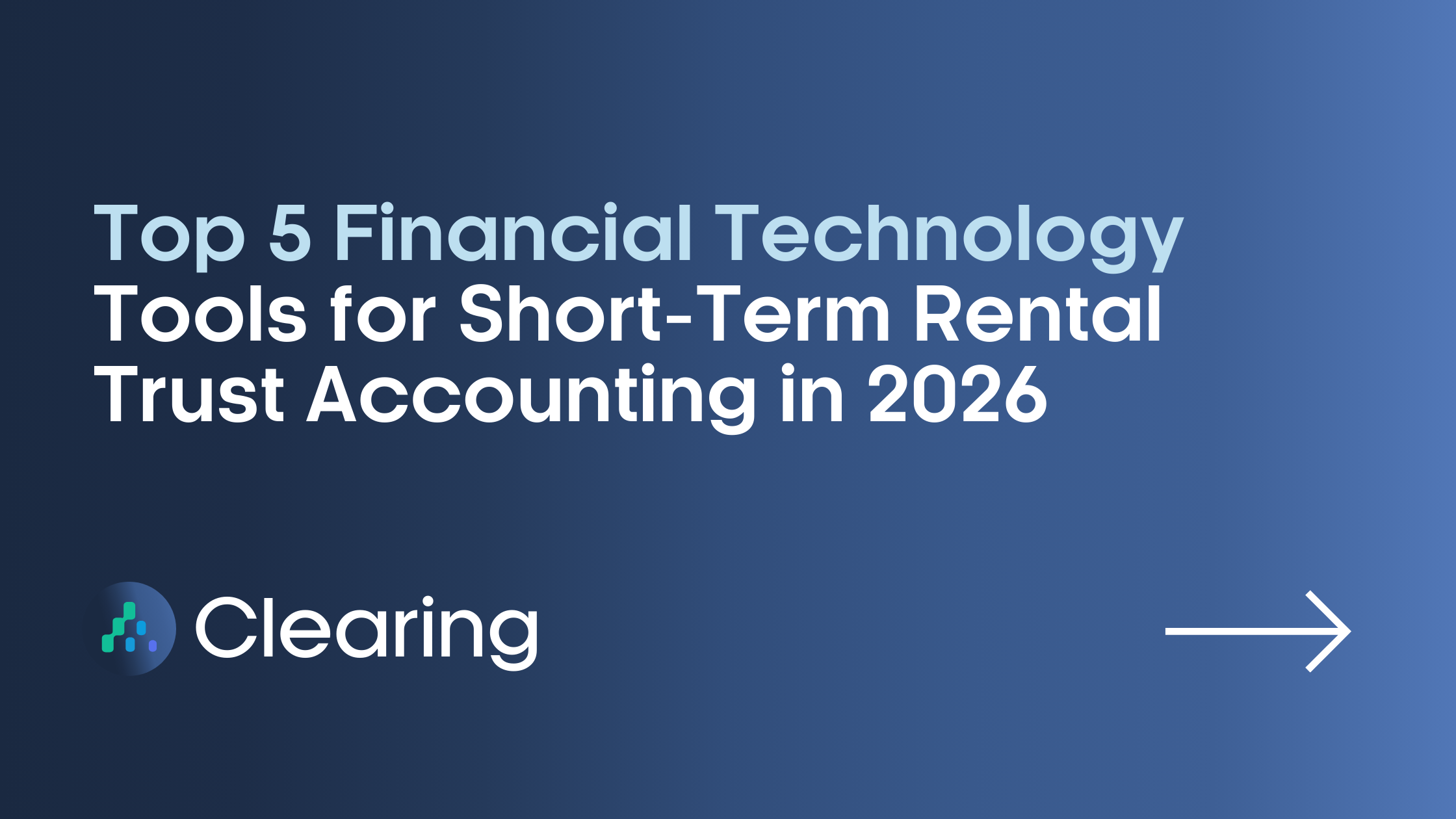

.png)
.png)
.png)
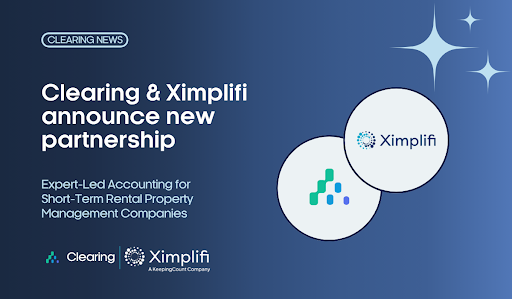
.png)
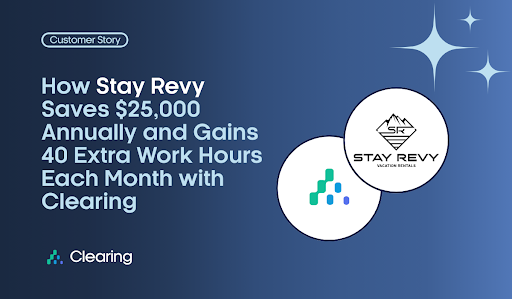
.png)
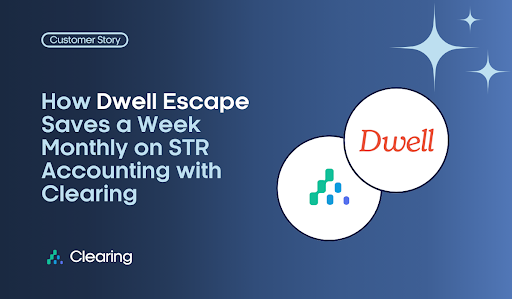
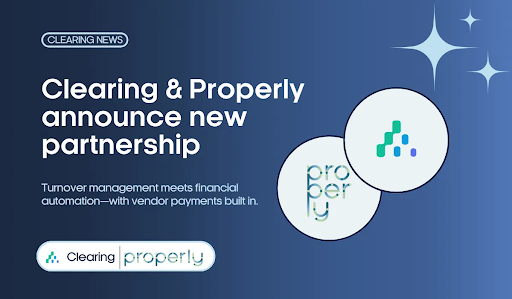
.png)
.png)
.png)
%20(1).png)
%20(1).png)
%20(1).png)
.png)
%20(2).png)
%20(1).png)
%20(1).png)
.png)

.png)
.png)
.png)
%20(1).png)
.png)
.png)
.png)
.png)
.png)
.png)
.png)
%20(1).png)
.png)
.png)
.png)
%20(1).png)
%20(1).png)
%20(1).png)








.jpg)
%20(1).png)
%20(1).png)
%20(2).png)
%20(1).png)

%20(1).png)
%20(1).png)
%20(1).png)



%20(1).png)
%20(1).png)
%20(1).png)
%20(1).png)
%20(1).png)


%20(1).png)
%20(1).png)
%20(1).png)
%20(2).png)
%20(2).png)



%20(2).png)


%20(2).png)
%20(1).png)
.png)


%20(2).png)
%20(2).png)

.jpg)
.png)
.png)
.png)



.png)